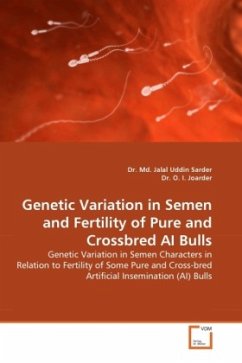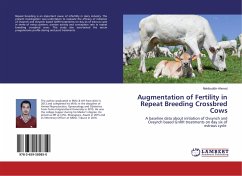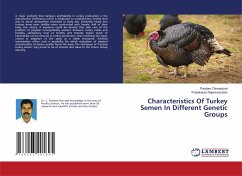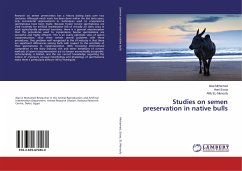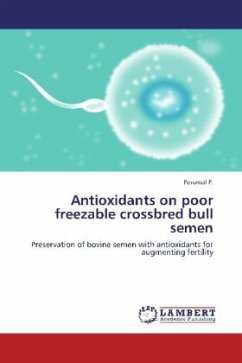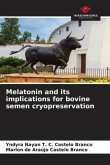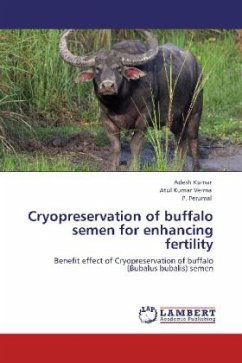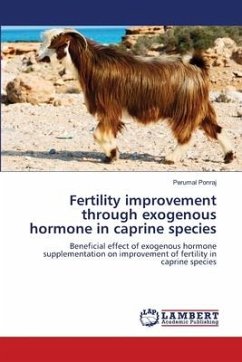The present investigation was to evaluate the genetic variation in semen characters in relation to fertility from 71 bulls used for Artificial Insemination (AI) programme. The bulls were classified as bull factors viz. breed, age, body weight, body condition, scrotal circumference and libido. Environmental and managemental factors were considered as season, ambient temperature and relative humidity during semen collection and AI stations. Friesian breed (100%) showed better phenotypic characteristics and 8-10 yrs of age groups gave superior performances. The largest volume obtained in 50%SL×50%F and smallest in 100%Local. Lowest and highest spermatozoa abnormalities were recorded to be in SL-499 and F-0054 respectively of AI station Dhaka. The significant highest sperm motility rate was recorded in 50%SL×50%F and lowest in 75%F×25%L bulls. The significant maximum NRR was recorded in genetic groups of 100%Local and minimum in 75%Friesian×25%Local. The highest TSL(71.65×1.6µ) was found in F-0064 and lowest (66.50×1.58µ) was in L-40275. Genotypes of progeny, sire and dam as well as grade of feed had significant effect on the reproductive and productive performances of female progeny.
Bitte wählen Sie Ihr Anliegen aus.
Rechnungen
Retourenschein anfordern
Bestellstatus
Storno

